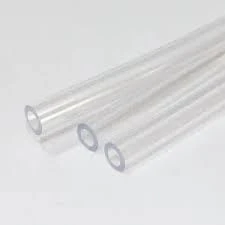dec . 06, 2024 04:59 Back to list
Understanding the Benefits and Applications of HDPE Water Pipes for Efficient Water Distribution
Understanding HDPE Water Pipes A Comprehensive Overview
High-Density Polyethylene (HDPE) has emerged as a leading material in the production of water pipes, offering a host of advantages that cater to the needs of modern infrastructure. With its outstanding properties and versatility, HDPE water pipes are increasingly being chosen for various applications in municipal water systems, agricultural irrigation, and industrial use. This article explores the key features, benefits, and applications of HDPE water pipes, providing a comprehensive insight into why they are transforming water delivery systems.
What is HDPE?
High-Density Polyethylene (HDPE) is a thermoplastic polymer made from the polymerization of ethylene. Known for its high strength-to-density ratio, HDPE is both lightweight and robust. These properties make it an ideal material for manufacturing durable and efficient water pipes. HDPE is resistant to corrosion, chemicals, and UV radiation, contributing to its long lifecycle and reliability under various environmental conditions.
Key Advantages of HDPE Water Pipes
1. Durability One of the standout benefits of HDPE water pipes is their durability. These pipes are highly resistant to physical impact, which significantly reduces the risk of breakage during transportation, installation, and operation. Additionally, HDPE does not corrode, rust, or degrade over time, ensuring a long service life and minimizing the need for replacements.
2. Flexibility HDPE water pipes exhibit remarkable flexibility, allowing them to be installed in a multitude of situations. This flexibility makes HDPE pipes suitable for trenchless installation methods, reducing the need for extensive excavation. The ability to bend and conform to various terrains during installation not only saves time but also lowers labor costs.
3. Cost-Effectiveness Although the initial investment in HDPE pipes might be higher than that of traditional pipes, their long-term savings are substantial. The durability and low maintenance requirements of HDPE result in lower operational costs over the lifespan of the piping system. Moreover, the quick installation process further reduces labor costs.
4. Sustainability As environmental concerns rise, the demand for sustainable materials in construction and infrastructure becomes paramount. HDPE is a recyclable material, which means that at the end of its life cycle, it can be repurposed and reused rather than ending up in landfills. This aligns with modern sustainability initiatives and promotes a circular economy.
hdpe water pipe

5. Hydraulic Efficiency HDPE water pipes have smooth internal surfaces, which leads to lower friction losses when water flows through them. This feature enhances the overall hydraulic efficiency of water delivery systems, allowing for more effective and reliable water transport.
Applications of HDPE Water Pipes
HDPE water pipes have a wide range of applications across various sectors
- Municipal Water Systems Many cities and towns have adopted HDPE pipes for their drinking water distribution systems. Their ability to withstand pressure and resist corrosion makes them ideal for delivering clean water.
- Irrigation In agriculture, HDPE pipes are frequently used for irrigation systems. Their flexibility and resistance to environmental stressors help farmers efficiently manage water resources and increase crop yields.
- Wastewater Management HDPE pipes are also used in sewage systems due to their chemical resistance and durability. They efficiently handle the transport of wastewater without the risk of leakage or contamination.
- Industrial Applications Various industries utilize HDPE piping for transporting chemical substances, where traditional materials might fail due to corrosion or chemical attacks.
Conclusion
HDPE water pipes represent a significant advancement in the materials used for water conveyance. Their combination of durability, flexibility, cost-effectiveness, and sustainable properties has made them a preferred choice for water infrastructure globally. As the demand for reliable, efficient, and environmentally-friendly solutions grows, it is expected that the use of HDPE pipes will continue to expand, solidifying their role as a cornerstone of modern water management systems. Whether for municipal, agricultural, or industrial applications, HDPE water pipes are setting new standards in the pursuit of sustainable water solutions.
-
PP U-channel: Chemical-Resistant, Lightweight & Durable
NewsAug.10,2025
-
Transparent PVC Pipe: Clear Flexible Tubing for Fluids
NewsAug.09,2025
-
Durable PP Rigid Sheet: Versatile & High-Quality Plastic Panels
NewsAug.08,2025
-
Premium Glossy PP Rigid Sheet – Durable & Versatile
NewsAug.07,2025
-
High-Quality HDPE Sheet | Durable Plastic Panels
NewsAug.06,2025
-
High-Precision PVC Rigid Sheets for Vacuum Forming | AI-Optimized
NewsAug.05,2025

